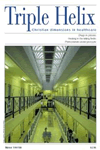The Internet is a network of computers which was originally designed by the United States military to withstand a nuclear war. One part of it, the world wide web (WWW) is an electronic magazine with no editor or contents page and over 50,000,000 pages published by different organisations and individuals.
Every page has a unique address which starts with 'http://'. All programs to access the WWW (eg Internet Explorer or Netscape) will have a space near the top of the screen where you can type an address in yourself. By clicking the mouse on a highlighted word, you are transported to another page which could be anywhere in the world. This process, which can be frustratingly slow and unproductive, is called 'surfing' - maybe one day it will become more like the real thing.
E-mail is the other most important aspect at the moment. This electronic equivalent of a letter is 'posted' via the phone line at local call rates and can arrive on the other side of the world seconds later.
The Internet is growing faster than the telephone did when it was introduced. Most people agree it will incorporate all our communication needs in the 21st century. One company plans to use existing electricity power cables as a pipe for computer data, providing connections that are twenty times faster than at present. Before much longer you will be able to send an e-mail to your computerised fridge to cancel its regular order for your weekly supplies as you have decided to stay an extra week on holiday. Then, most of your week's work could be carried out in your hotel room and no-one need know. Tele-medicine, tele-shopping, tele-banking . . . where will it all end?
Some people dislike the invasion of computers into our everyday lives. Because of the pornography and paedophile material on it, some Christians shy away from the Internet. The fact is, the Net is simply another morally neutral technology. Like the television and the phone it certainly will have an impact on our lives, but not necessarily the dire one predicted. The real question is, will Christians allow 'the world' to dominate the fastest global communication tool known to man? If we believe in the power of the Gospel, we need to see it released more and more into these media.
With the Internet, national boundaries become irrelevant to the passage of information. It is virtually impossible to censor, and whilst this can be unfortunate, interested individuals are consequently reading Christian webpages in the hearts of countries where Bibles are unobtainable.
Dr Patrick Dixon's website
Patrick Dixon is one of the most well-known and energetic Christian doctors in the UK. He founded the AIDS charity ACET and has written more books in the last five years than most people would in a lifetime.
http://globalchange.com/patrick_index.htm
Patrick passionately explores issues of interest to Christian health professionals. Genetic engineering, corrupt politicians, and even a ride in the Royal London Hospital's helicopter are included on his site.
Each article is well written, although the whole site is fairly basic to look at. He extols the virtues of the new technology, at times with an almost evangelistic zeal. For example, the Nokia communicator is hailed for its ability to access the Internet from anywhere. He described the joy of being totally in contact. So now, not only do we have pagers and mobile phones, even our e-mail can follow us wherever we go. To be connected to the Internet at all times would not be my idea of fun! I am sure that Patrick quickly came to realise that the Internet like everything else needs to be switched off from time to time.
There is certainly some good information on Patrick's pages. My one criticism is the lack of links to other sites. Anyone who has spent any time on the Internet knows that finding relevant information is the most difficult aspect to it all. Ironically, the sites I repeatedly return to are the ones that lead me to others containing subjects I am interested in. Without these links even the best website can seem like a dead end street. Even ACET don't get a link; in fact they hardly get a mention! However, don't let this criticism put you off visiting this excellent site, as it is by no means the only good site with very few links to other pages.
Ratings
Appearance **Content ****
Ease of finding other information *
Summary: an up to date site that is well worth a visit
- If the web still confuses you and seems like an endless sea, Dr Adrian Warnock has produced a guide called 'Get Fishing'. To read it, visit http://home.ml.org/warnock/getfish.htm on the world wide web. You can contact Adrian by e-mail: [email protected]
































